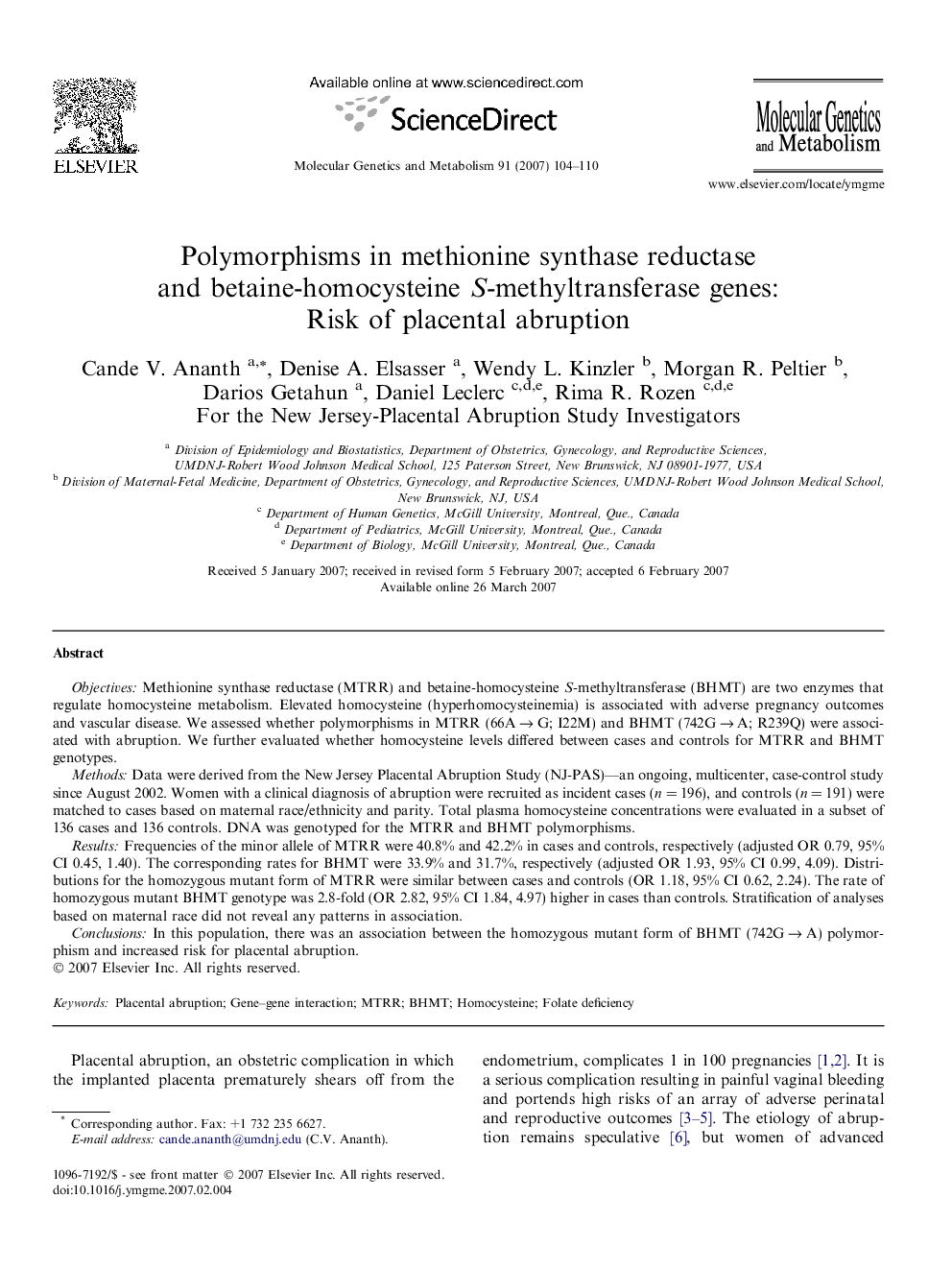| Article ID | Journal | Published Year | Pages | File Type |
|---|---|---|---|---|
| 2000132 | Molecular Genetics and Metabolism | 2007 | 7 Pages |
Objectives: Methionine synthase reductase (MTRR) and betaine-homocysteine S-methyltransferase (BHMT) are two enzymes that regulate homocysteine metabolism. Elevated homocysteine (hyperhomocysteinemia) is associated with adverse pregnancy outcomes and vascular disease. We assessed whether polymorphisms in MTRR (66A → G; I22M) and BHMT (742G → A; R239Q) were associated with abruption. We further evaluated whether homocysteine levels differed between cases and controls for MTRR and BHMT genotypes.Methods: Data were derived from the New Jersey Placental Abruption Study (NJ-PAS)—an ongoing, multicenter, case-control study since August 2002. Women with a clinical diagnosis of abruption were recruited as incident cases (n = 196), and controls (n = 191) were matched to cases based on maternal race/ethnicity and parity. Total plasma homocysteine concentrations were evaluated in a subset of 136 cases and 136 controls. DNA was genotyped for the MTRR and BHMT polymorphisms.Results: Frequencies of the minor allele of MTRR were 40.8% and 42.2% in cases and controls, respectively (adjusted OR 0.79, 95% CI 0.45, 1.40). The corresponding rates for BHMT were 33.9% and 31.7%, respectively (adjusted OR 1.93, 95% CI 0.99, 4.09). Distributions for the homozygous mutant form of MTRR were similar between cases and controls (OR 1.18, 95% CI 0.62, 2.24). The rate of homozygous mutant BHMT genotype was 2.8-fold (OR 2.82, 95% CI 1.84, 4.97) higher in cases than controls. Stratification of analyses based on maternal race did not reveal any patterns in association.Conclusions: In this population, there was an association between the homozygous mutant form of BHMT (742G → A) polymorphism and increased risk for placental abruption.
